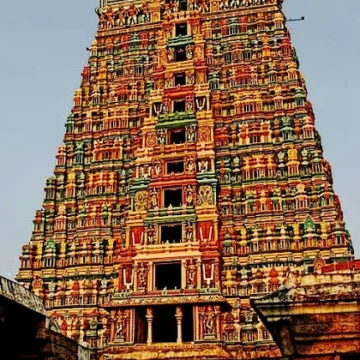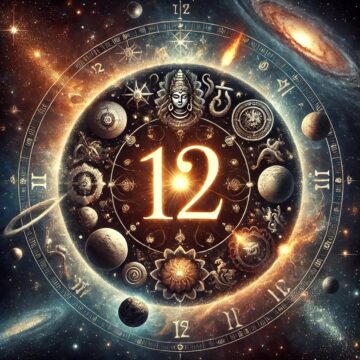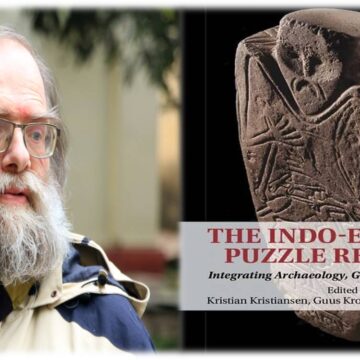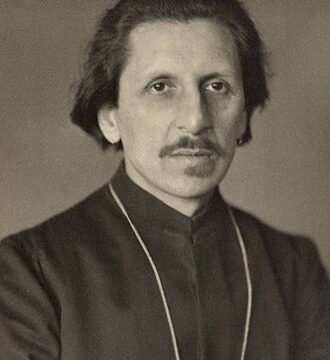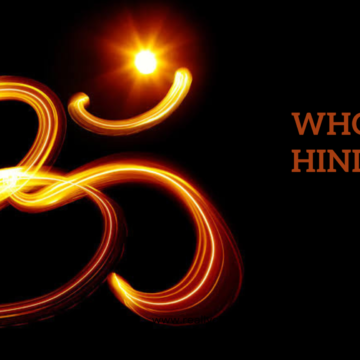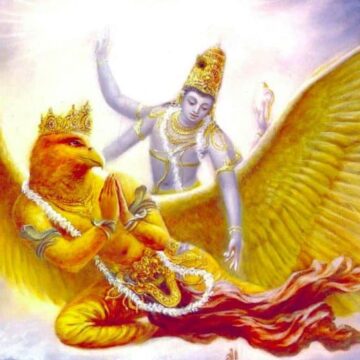For centuries, Hindu temples thrived as autonomous centers of faith, culture, and community life. However, today, the secular state treats temples as mere public property and exploits them, subjecting them to to excessive taxation, mismanagement, and neglect. Unlike religious institutions of other faiths, Hindu temples remain uniquely burdened by government interference, highlighting a systemic inequality. In this call to liberate Hindu temples, Raghu Bhaskaran addresses the concerns of corruption and mismanagement if temples are freed and asserts that freeing temples is a key step towards Hindus owning their narrative.
Category: ESSAY
No Waqf, No Fawq, Just some FAQs on Hindu Temple Properties
A Hindu temple and its properties do not belong to the government, the public or even the Hindu community — they belong solely to the residing deity, the Pradhana Devata. Historical arguments about coercion in temple land donations ignore the broader reality that all land ownership has evolved under different rulers. While institutions like the Waqf Board retain vast properties, temples face state control and encroachment, reducing them to mere revenue sources. This neglect betrays both the faith of past donors and the cultural heritage temples embody.
The Number 12 – An Exploration across Cultures
In this essay, Dr. Koenraad Elst explores the profound symbolic importance of the number 12 across cultures, from the 12 Ādityas in the Vedas to the Olympian gods and the 12-starred EU flag. In ancient India, it represented cosmic order, as seen in the Ṛg-Vedic 'Riddle Hymn' describing a twelve-spoked wheel of Ṛta. Mathematically and geometrically unique, the twelvefold division underlies the structure of the Zodiac and the ancient Yajur-Vedic seasonal cycle.
When Scientism Overshadows Science: An Orthodox Critique of the Sophistry of Evolutionism
"It is a modern tendency within religious factions to seek a synthesis and synchronization between the domains of Religion and Science. This inclination manifests in the attempts of forceful amalgamation of both domains, with the rejection of traditional interpretations of Religion and deliberate efforts to reformulate it to seamlessly align with the framework of Science."
In The Eye of the Storm Again: The “Aryans”
On 12 September, Dr Koenraad Elst sent the following open letter to archaeologist Kristian Kristiansen, linguist Guus Kroonen and geneticist Eske Willerslev, editors of the research collection The Indo-European Puzzle Revisited, 2023, and their publisher, Cambridge University Press.
Ananda K. Coomaraswamy on Education in India
This article is a summary and paraphrasing of three of the important essays by Ananda K. Coomaraswamy on the English education of those times (Education in India; Memory in Education; and Music and Education in India).
These three brilliant essays appear in the book Essays in National Idealism. He wrote on an overwhelming variety of topics, which perhaps would require a lifetime of study for any individual.
The aim of this article is to stimulate readers to undertake a serious journey to the writings of Coomaraswamy, a person whose rediscovery means a lot to present India, confused by a mass of rhetoric eulogising the notions of "modernity" and progress.
The reality of a hundred years ago, that he highlights in these essays, is unambiguously still relevant to India, with its acceptance of both the English language as the major medium of instruction and secularism as the guiding principle of our curricula.
Hindu, Hinduism, Hindudtva – Part 2
In the second part, Dr. Pingali Gopal discusses the evolution of political Hindutva after independence, and sheds light on the failure to define the basic terms as we struggle with the alleged rise of ‘Hindu fundamentalism'.
Hindu, Hinduism, Hindutva – Part 1
Who exactly is a ‘Hindu’ and what are ‘Hinduism’ and ‘Hindutva’? Does it mean the land (geography), ancestral roots (history), or a shared culture?
Dr. Pingali Gopal tackles this proverbial bull by the horns, systematically looking at attempts to define and distinguish ‘Hinduism’ and ‘Hindutva’ by Western thought, the Indian liberal elite, and practising Hindus.
Garuda – A Unique Amalgamation of Power, Royalty, Divinity & Faith
This article, discusses Garuda, the vehicle of the mighty Vishnu; his presence and influence in iconography and symbology in Bharat and beyond.
Philosophical Systems Of India – A Primer – Part 5
The problems in Western philosophical traditions arise due to many factors, mainly the confusion of the relation between mind and matter; and making philosophy subservient to scientific dogma. Indian philosophy is not a dry intellectual exercise and holds a definite purpose to propel humans into the highest realms of bliss. Indian and Western philosophical traditions run on two parallel tracks consequently.

